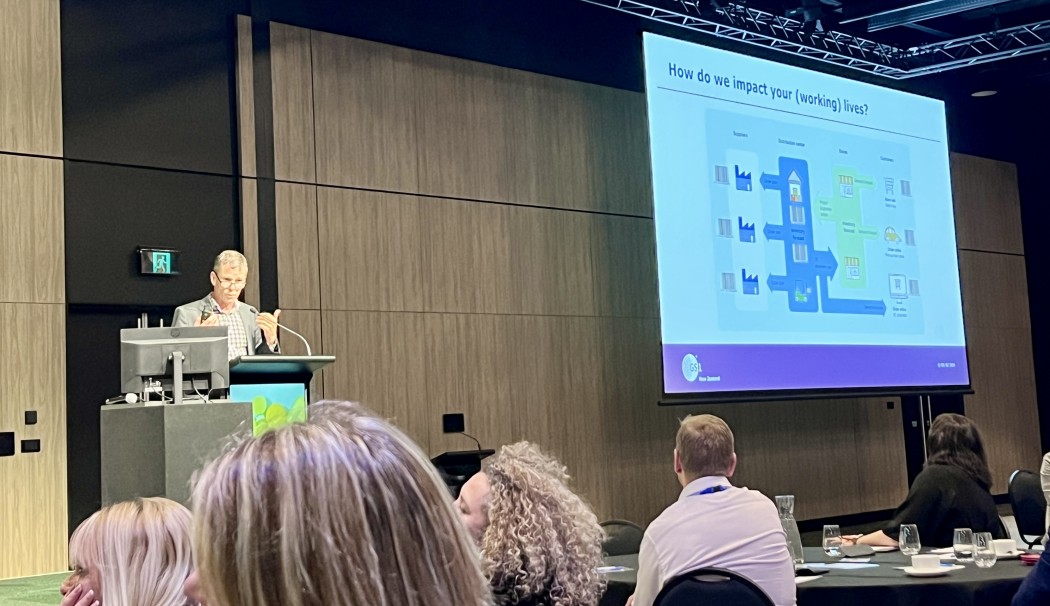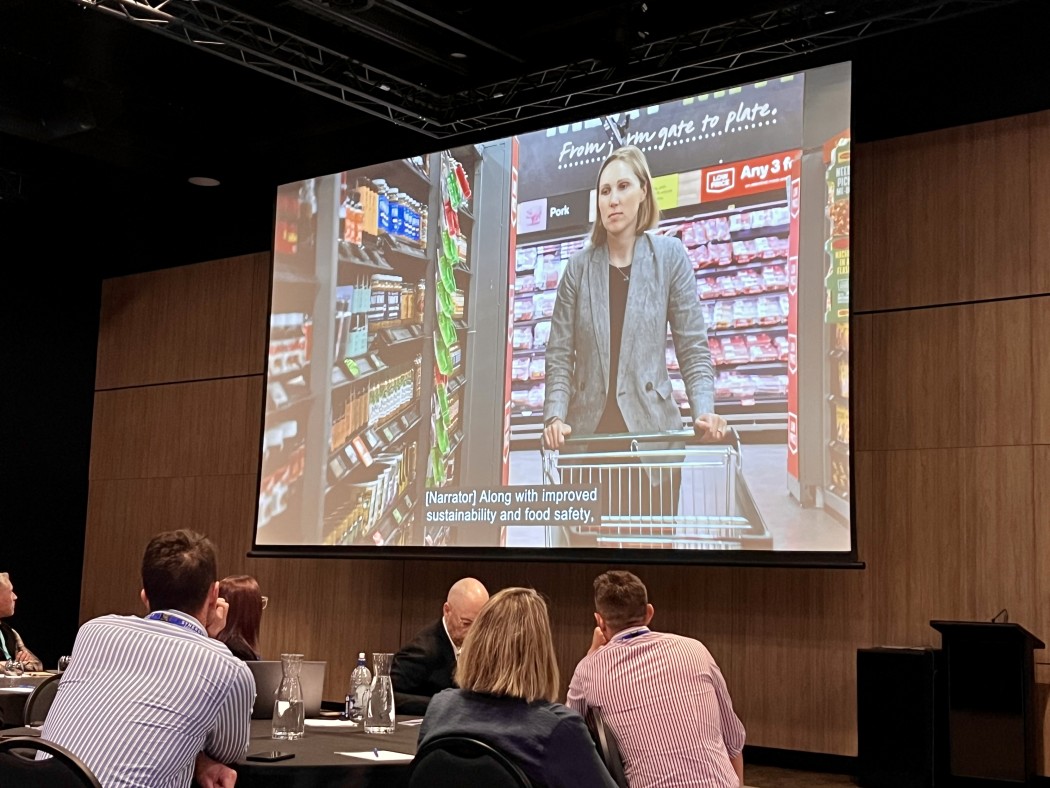What’s changing in Food and Grocery? Outtakes from the Food and Grocery Council Conference 2024
Resilience and determined optimism were key themes that emerged from the NZ Food and Grocery Council Conference in November. While the sector has faced a challenging period, with inflation now back in band, and the country climbing up out of ‘recession’ there was plenty to celebrate across the board. GS1 New Zealand was pleased to partner with the Food and Grocery Council this year as a member of the Shared Horizons media series.
Here are four highlights from the GS1 New Zealand team who attended:
Watch GS1's Shared Horizons video:
“It was fascinating to hear expressed what we as GS1 New Zealand had already assumed – that information around product sustainability is now influencing purchasing behaviour among New Zealand consumers” – Klaeri Schelhowe, 2D Barcode Lead, GS1 New Zealand.
1. Consumers are demanding enhanced product information
The trends from consumers are clear. While convenience has always played a role in consumer choice, the sector is now seeing consumers making purchase decisions based on “better me” and environmental impact. Consumers are demanding enhanced product information to be able to make these informed choices, and GS1’s global, open standards can play a role in enabling this product information exchange. Solutions such as 2D barcodes can now empower consumers worldwide with actionable product information to support environmental outcomes and consumer choice.
2. Sustainability needs proof
The second clear theme builds off the first, and that is that sustainability needs proof. As New Zealand businesses look to scale product claims around sustainability, proof is required to maintain consumer trust but also market access when exporting New Zealand products. To combat ‘bluewashing’ otherwise known as ESG washing, ‘greenwashing’ and ‘greenhushing or staying quiet about their climate strategies,’ requires verifiable claims and trustworthy product data provision.
3. The Brussels Effect is reshaping ESG reporting requirements
With the food sector being one of the largest industries and emitters in the world, it was clear from the Conference that the industry is facing mounting pressure to reduce emissions and that the European Union has a strong stance on decarbonisation. The Brussel’s Effect is re-shaping ESG reporting requirements and reporting with EU-level standards increasingly being applied across global markets. As a country New Zealand relies heavily on product exportation and export businesses need to be abreast of what these changes are, how these changes may impact market access and plan accordingly.
4. Standardisation can support efficiency and growth
Lastly, it was pleasing to hear how standardisation can support efficiency and growth. The food and grocery sector in New Zealand, while smaller in comparison to other countries, is a complex ecosystem, and global standards can play a role in enabling efficiency and productivity. Deploying global standards is not about creating competitive advantage but rather about enabling businesses to fulfil supplier requirements and operate more effectively. Advice and collaboration with the Commerce Commission to assist parties coming together will be essential to ensure these benefits continue to be realised in New Zealand while maintaining healthy competition and market access.
The sector continues to evolve, and New Zealand businesses have maintained resilience despite challenge economic conditions over the last 12 months. At GS1 New Zealand we share the optimism of those who attended and look forward to supporting the sector in the year ahead.



